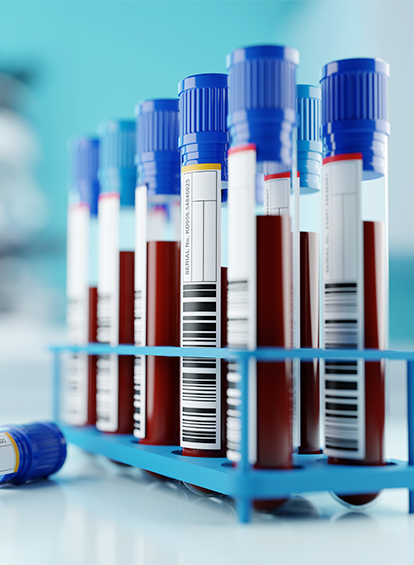Adult Psychiatry
Bipolar Disorder
Bipolar Affective Disorder is a complex and lifelong mental health condition marked by significant fluctuations in mood, energy levels, and behaviour. Individuals with bipolar disorder experience episodes of elevated mood—referred to as mania or hypomania—alternating with periods of low mood, known as depression. These shifts can affect a person’s ability to manage everyday responsibilities, relationships, and overall wellbeing. While the intensity and frequency of episodes can vary, the condition often requires ongoing management. With the right combination of medical, psychological, and lifestyle interventions, individuals with bipolar disorder can achieve long-term stability and lead fulfilling lives.

What is it?
Bipolar disorder is characterised by distinct mood episodes that differ dramatically from a person’s usual emotional state. During manic or hypomanic phases, individuals may feel extremely energised, overly confident, or impulsive. These phases can disrupt sleep, concentration, and decision-making, and may sometimes lead to risky or erratic behaviour. Conversely, depressive episodes are defined by persistent sadness, low energy, a loss of interest in daily activities, and impaired cognitive functioning.
Some individuals experience mixed episodes, where symptoms of both mania and depression occur simultaneously or in quick succession. These can be particularly distressing and challenging to manage without specialist support. The severity, frequency, and type of mood episodes help define the specific diagnosis and guide treatment planning.
Book an appointment
Additional Information

Key Characteristics of Bipolar Disorder
Bipolar disorder presents with a range of mood episodes:
Manic Episodes – involve elevated mood, excessive energy, and increased activity. Common features include inflated self-esteem, reduced need for sleep, rapid speech, racing thoughts, and risk-taking behaviours. Severe episodes may include psychotic symptoms such as delusions or hallucinations.
Hypomanic Episodes – similar to mania but less intense, hypomania still causes noticeable changes in mood and energy levels but does not typically lead to severe functional impairment.
Depressive Episodes – involve a prolonged low mood, fatigue, feelings of worthlessness or guilt, difficulty concentrating, and a loss of interest in activities. In more severe cases, thoughts of self-harm or suicide may be present.
Mixed Episodes – combine features of both mania and depression, occurring either simultaneously or in rapid succession, leading to emotional instability and heightened distress.
Types of Bipolar Disorder
Bipolar I Disorder: Defined by at least one manic episode lasting a week or requiring hospitalisation. Depressive episodes usually follow.
Bipolar II Disorder: Involves recurrent hypomanic episodes and at least one major depressive episode, without full mania.
Cyclothymic Disorder (Cyclothymia): Characterised by ongoing periods of milder hypomanic and depressive symptoms that persist for two years or more.
Other Specified and Unspecified Bipolar Disorders: Diagnosed when symptoms cause significant distress but do not meet the full criteria for the above types.
What Causes Bipolar Disorder?
Bipolar disorder is believed to result from a combination of genetic, neurobiological, and environmental factors. A family history of bipolar disorder or related mental health conditions is a significant risk factor, suggesting a strong genetic component.
Neurochemical imbalances, particularly involving serotonin, dopamine, and norepinephrine, are also implicated in mood regulation and are thought to play a key role in the development of bipolar symptoms. Environmental stressors—such as trauma, prolonged stress, or major life transitions—can trigger episodes or exacerbate existing symptoms.
Treatment Approaches
Although bipolar disorder is a lifelong condition, it can be effectively managed with a comprehensive, tailored approach. Treatment typically includes:
Medication – Mood stabilisers (e.g. lithium), antipsychotics, and carefully monitored use of antidepressants may be prescribed to manage symptoms and prevent relapse.
Psychological Therapies – Talking therapies such as Cognitive Behavioural Therapy (CBT), psychoeducation, and family-focused therapy help individuals understand their condition, develop coping strategies, and improve communication within support networks.
Lifestyle Adjustments – Establishing a regular sleep routine, avoiding alcohol and recreational drugs, managing stress, and maintaining a balanced diet all contribute to emotional stability.
Support Networks – Involvement in peer groups, counselling, and ongoing follow-up with healthcare providers can provide essential encouragement and guidance.
How We Can HelpBipolar disorder presents with a range of mood episodes: Manic Episodes – involve elevated mood, excessive energy, and increased activity. Common features include inflated self-esteem, reduced need for sleep, rapid speech, racing thoughts, and risk-taking behaviours. Severe episodes may include psychotic symptoms such as delusions or hallucinations. Hypomanic Episodes – similar to mania but less intense, hypomania still causes noticeable changes in mood and energy levels but does not typically lead to severe functional impairment. Depressive Episodes – involve a prolonged low mood, fatigue, feelings of worthlessness or guilt, difficulty concentrating, and a loss of interest in activities. In more severe cases, thoughts of self-harm or suicide may be present. Mixed Episodes – combine features of both mania and depression, occurring either simultaneously or in rapid succession, leading to emotional instability and heightened distress.
At The Clinica, Dr Arora offers specialist assessment and evidence-based treatment for adults with Bipolar Affective Disorder. Through a comprehensive consultation, she will confirm the diagnosis, assess the severity of symptoms, and develop a personalised care plan based on your needs and goals.
In addition to one-to-one care, we provide education and support for families, schools, and workplaces to help them better understand the condition and offer meaningful support. If you or someone close to you may be affected by bipolar disorder, please contact our Booking Team on 01344 946363 or email info@theclinica.co.uk to arrange a confidential consultation.
Frequently Asked Questions
Bipolar disorder is a lifelong condition, but it can be successfully managed. Many individuals experience long-term stability with the right combination of treatment, support, and self-care.
Bipolar I involves at least one full manic episode, often with depressive episodes. Bipolar II includes hypomania (a milder form of mania) and major depressive episodes, but not full mania.
Medication is often part of long-term management, but this depends on individual needs and how well symptoms are controlled. Your clinician will regularly review your treatment plan.
Triggers may include stress, sleep disruption, seasonal changes, trauma, or substance use. Identifying and managing triggers is an important part of treatment.
Yes, especially in early stages. Some symptoms overlap with depression, ADHD, or anxiety. A comprehensive assessment by Dr. Arora is essential for an accurate diagnosis.
Specialised Clinics
General Enquiries
Please send your enquiry to us and our Practice Manager will be in touch shortly. Alternatively, if you would rather speak to us or your enquiry requires our urgent attention, please call us on 01344 946363.







